News
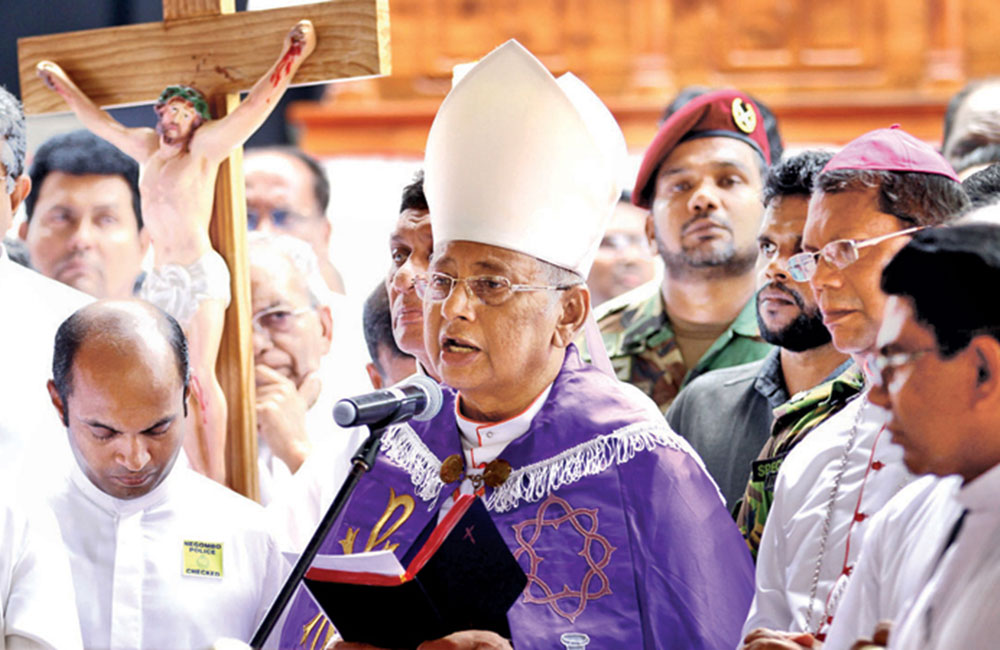
Sri Lanka cardinal holds private mass; calls suicide attacks an 'insult to humanity'
Sri Lanka's Roman Catholic leader on Sunday condemned the Easter attacks as "an insult to humanity" as the country marked a week since suicide bombers hit three churches and three luxury hotels.
The Archbishop of Colombo, Cardinal Malcolm Ranjith, held a private mass shown live on television after cancelling all public services amid fears of a repeat of the attacks which left 253 dead.
But a heavily guarded vigil was held outside St Anthony's Shrine in Colombo at 8.45am, the moment the bomber struck the church last week, killing dozens of worshippers.
The archbishop began his mass with an appeal for peace and unity in the multi-ethnic South Asian which has been put on edge by the attacks which also left nearly 500 injured.
"What happened last Sunday is a great tragedy, an insult to humanity," the cardinal said, urging followers to show kindness to others as a sign of respect for all the victims.
"Today during this mass we are paying attention to last Sunday's tragedy and we try to understand it. We pray that those who lost their lives that day have eternal life through the Lord and those who were injured will be healed soon.
"In the same way, we pray that in this country there will be peace and co-existence and understanding each other without division," he said.
At the devastated St Anthony's Shrine, armed troops and police guarded the church as its bells rang out at the moment a suicide bomber blew himself up. The hands on the clock tower clock are stuck at 8.45.
Around 20 women holding candles outside the church pressed their palms together, many weeping silently while others sobbed and murmured prayers.
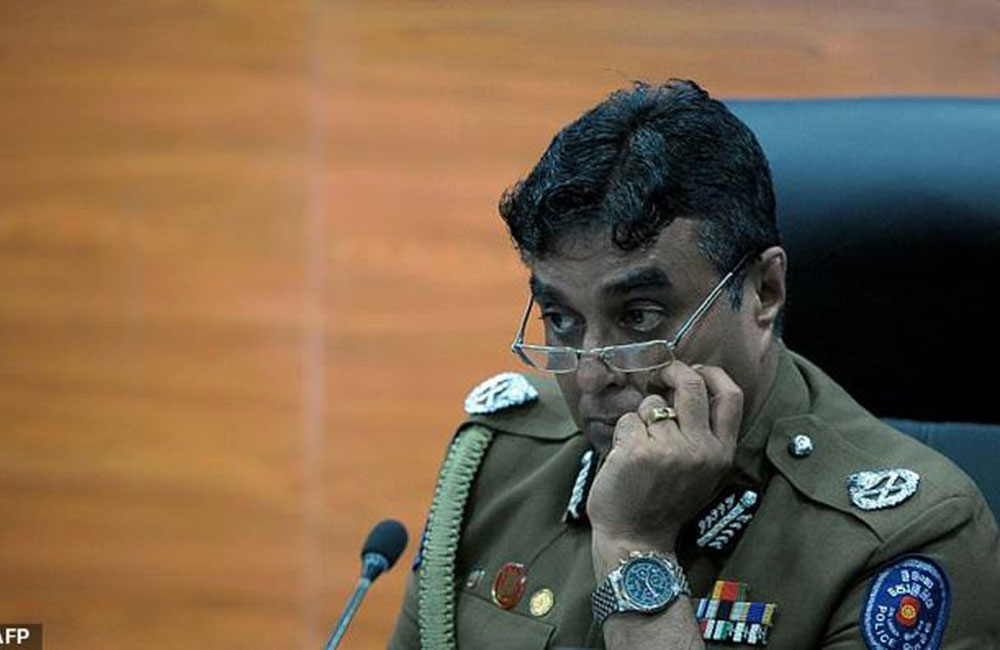
IGP Pujith Jayasundara resigns
Sri Lanka's police chief resigned from his post on Friday, two days after President Maithripala Sirisena asked him to step down over the security establishment's failure to avert the deadly Easter bombings. Sirisena, who is also the defence minister, said Inspector General of Police Pujith Jayasundara resigned over failures which led to the attacks on three hotels and three churches on Sunday that claimed 253 lives.
"The IGP has resigned. He has sent his resignation to the acting defence secretary. I'll nominate a new IGP soon," the president said. The police chief's resignation came a day after the country's defence secretary Hemasiri Fernando handed over his resignation letter to the president.
Sirisena had asked Fernando and Jayasundara to quit after their failure to prevent the blasts despite having prior intelligence. Sirisena said the intelligence supplied by a friendly nation was not shared with him by officials. "All they have done was to exchange letters among themselves," he said.
"I asked both police chief and defence secretary why the information was not shared with me, they remained silent," he said. He said the security lapse was also due to the current government's weakening of intelligence operations.
This is a reference to the arrest and trials against a handful of military intelligence officers who were responsible for attacks and murder of journalists, abductions and ransom taking, he said. He said the power struggle in his government was because he had objected to the government's weakening of the security forces.
Sirisena said he would soon set up a Joint Operations Command to combat terrorism and each and every house would be checked for the safety of all citizens. Top officials have acknowledged that Sri Lanka received intelligence about possible terror strikes ahead of the attacks, but both Sirisena and Prime Minister Ranil Wickremesinghe said that they did not receive the information.
Nine suicide bombers carried out a series of devastating blasts that tore through three churches and three luxury hotels on Easter Sunday.
The Islamic State group has claimed responsibility for the attacks, but the government has blamed a local Islamist extremist group National Tawheed Jamath (NTJ) for the attacks.
The president also confirmed that Sri Lankan Islamist extremist Zahran Hashim, the leader of the NTJ, died in the blast at the Shangri-La hotel. Hashim led the attack on the hotel and was accompanied by a second bomber, Ilham Ahmed Ibrahim.
The president also appealed to the island nation not to view its minority Muslim community as terrorists in the wake of the attacks. Sirisena said despite the attacks, the island's nine per cent Muslim minority must not be regarded terrorists.
"We looked into banning the NTJ but we do not have laws to do that right now. We have to draft new laws. We will get this done soon," he said. "Information is that around 130-140 ISIS suspects are in the country. Around 70 are arrested, we will arrest them all very soon ending this (terror)," Sirisena said.
Police said that over 70 suspects, including five women, have been arrested as the Lankan authorities have intensified their search operations with the help of the army. Today's Friday prayers were cancelled as a Muslim Theologists Group, Jammiyyathul Ulama asked Muslims to pray indoors. This was following the information received that extremists could carry out more attacks.
The city and the immediate suburbs of Colombo looked deserted this morning. Most offices have allowed employees to work from home. "During the last 24 hours, there have been no incidents reported," Brigadier Sumith Atapattu, the military spokesman, said.
He said the Sri Lankan Army would continue search operations for suspects linked to the terror group.
(With inputs from agencies.)
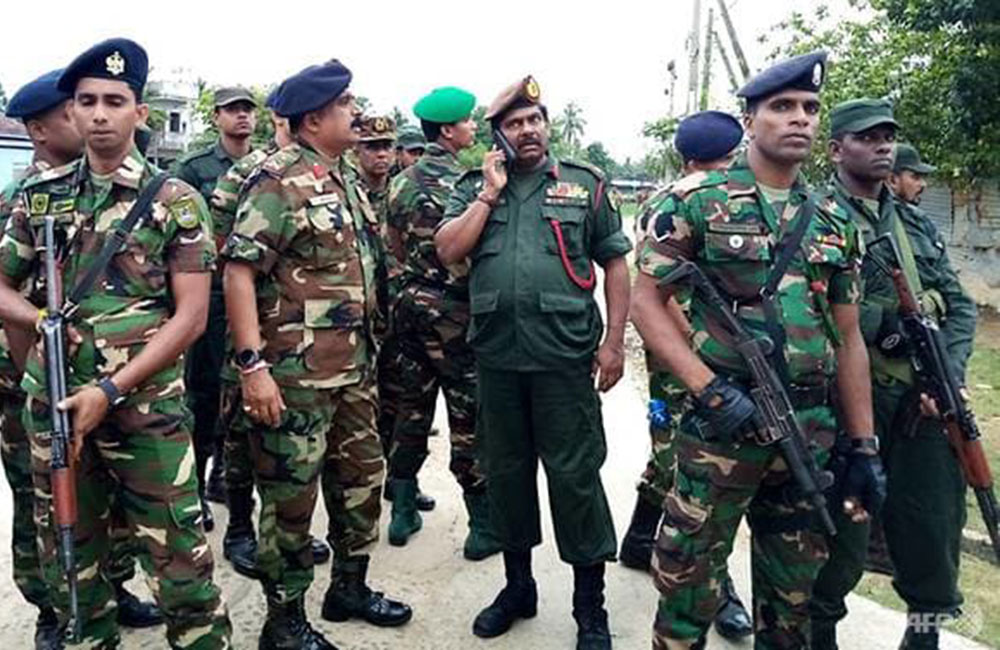
Attack in Kalmunai; 15 dead after fierce gun battle
At least 15 people died during a raid on a house in eastern Sri Lanka where suicide bombers blew themselves up and at least one man was killed in a gun battle with security forces.
The operation followed a tip off that extremists linked to the Easter suicide bombings were holed up in Kalmunai, a predominantly Muslim town around 215 km (135 miles) east of the capital Colombo.
Three men set off explosives that killed themselves, three women and six children inside the house on Friday night, police said on Saturday, April 27.
A police spokesman said that three suspected suicide bombers were among the 15 dead after the shootout.
One child caught in the crossfire was admitted to hospital.
Military spokesman Sumith Atapattu said in a statement that as troops headed towards the safe house three explosions were triggered and gunfire began.
"Troops retaliated and raided the safe house where a large cache of explosives had been stored," he said in a statement.
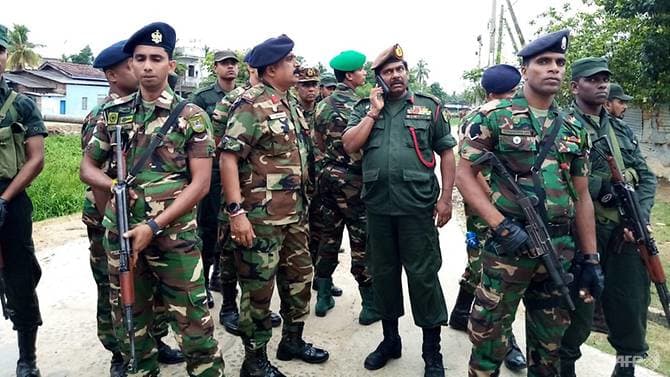
Soldiers stand guard in a neighbourhood after they raid what believed to be a safe house for a militant group in the eastern town of Kalmunai on Apr 27, 2019. (Photo: AFP)
He said the militants were suspected members of the National Towheed Jama'at (NTJ), which has been blamed for last Sunday's attacks.
Bomb-making materials, dozens of gelignite sticks and thousands of ball bearings were found in a search of a separate house in the same area along with Islamic State banners and uniforms, the military said.
The government has said nine homegrown, well-educated suicide bombers carried out the Easter Sunday attacks, eight of whom had been identified. One was a woman.
Police said on Friday they were trying to track down 140 people they believe have links with Islamic State, which claimed responsibility for the suicide bombings.
Sri Lanka's president has also said some Sri Lankan youths had been involved with the Islamic State since 2013 and that there were drug trafficking links.
"Our efforts to eradicate the drugs menace from the country could have advanced the ISIS attack," Sirisena said.
Police have detained at least 76 people, including foreigners from Syria and Egypt, in their investigations so far. Twenty were arrested in the past 24 hours alone, they said.
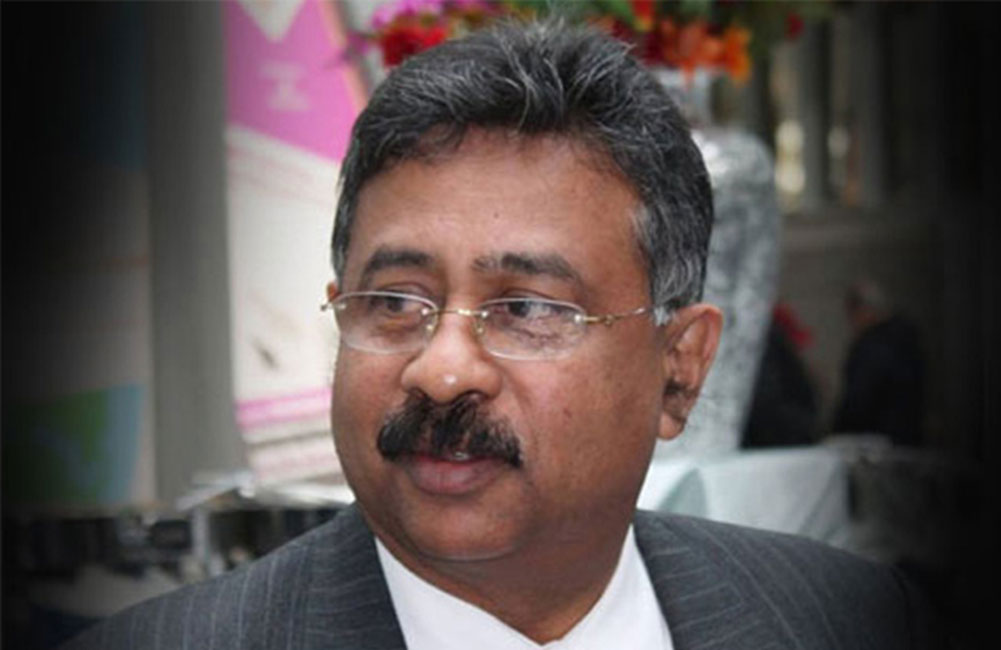
Constitutional Council approves AG Jayantha Jayasuriya as the new Chief Justice
The Constitutional Council has unanimously approved Attorney General Jayantha Jayasuriya as the new Chief Justice after considering the recommendation made by President Maithripala Sirisena.
The Speaker’s Office said that the Constitutional Council, chaired by Speaker Karu Jayasuriya, convened this morning (26) in Parliament.
Meanwhile, Additional Auditor General Chulantha Wickramaratne was also unanimously approved for the post of Auditor General by the Constitutional Council.
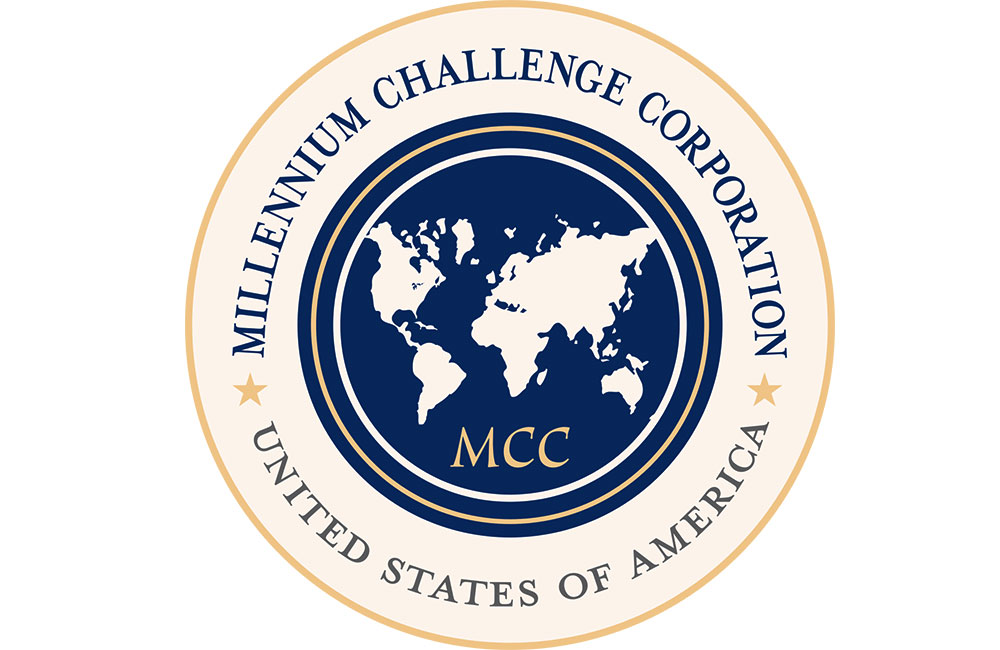
Amidst turbulent times, Sri Lanka to receive biggest foreign grant ever
The Millennium Challenge Corporation (MCC) of the US Government has approved a grant of USD 480 million to Sri Lanka at its board meeting held on the 25th of April 2019 in Washington D.C. subject to Congressional Notification.
On the request of the Hon. Prime Minister Ranil Wickremesinghe, the MCC has done an evaluation in terms of their investment criteria and selected Sri Lanka as a qualified country to receive grant funding under their Compact Investment Program.
Under this grant, Sri Lanka is getting a USD 480 million for 03 main projects to be completed within a period of 5 years i.e. a special Transport Development Program covering the Colombo Metropolitan area to reduce the traffic congestion by improving flow rate, reduce travel time, reduce traffic emission and reduce accidents combined with the Bus Transport Service Modernization program including private and public sector transport service.
Under transport development, improving 131 KM road network on the Central Ring Road connecting Sabaragamuwa, Uva, Eastern, North Central and Wayamba Provinces to the Colombo markets and export hubs. Further, improvement of Land Administration process also will be done in 08 districts, improving the land valuation system, upgrading 10 Land Registries and preparation of Parcel Fabric Map of all state and private land to facilitate the activities of the Survey Department.
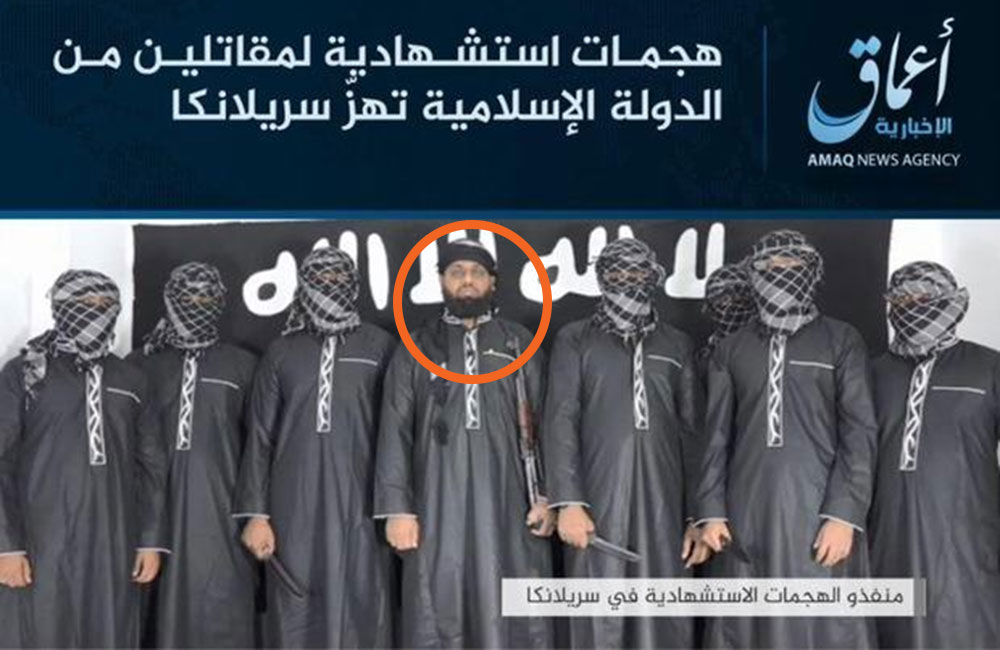
NTJ leader behind Easter attack died in hotel bombing
An extremist leader considered a central figure in Sri Lanka's Easter suicide bombings died in the attacks, the president said Friday as the police chief became the latest figure to quit over the failure to prevent the massacre.
With the country still on edge, heavy security was put in place for Friday prayers at mosques, but authorities revised down the bombings' toll to 253 dead from 359, saying some badly mutilated bodies had been counted twice.
President Maithripala Sirisena told reporters that local extremist Zahran Hashim, believed to be a key player in the attacks, died in one of the blasts at three packed churches and three luxury hotels used by foreign tourists.
"What intelligence agencies have told me is that Zahran was killed during the Shangri-La attack," he said.
He said Hashim led the attack against the hotel and was accompanied by a second bomber, who has been identified as Ilham Ibrahim.
Authorities had been on a desperate hunt for Hashim after the government named his group, National Thowheeth Jama'ath as perpetrators of the attack.
Hashim, who founded the NTJ, appeared in a video released by the Islamic State group when it claimed the strikes. He is seen leading seven others in a pledge of allegiance to the IS chief.
With the country on the defensive over ignored foreign warnings that attacks were likely, police chief Pujith Jayasundara became the second major resignation.
Sri Lanka's top defence ministry official Hemasiri Fernando stepped down late Thursday and the inspector general of police has also tendered his resignation, Sirisena announced, insisting that security institutions must "take responsibility."
"The defence secretary (Fernando) and IGP must take responsibility for the security failure," Sirisena said.
"That is why I asked them both to resign before I hold a disciplinary inquiry."
The government has faced recriminations over its failure to prevent the attacks despite receiving warnings.
Indian intelligence shared several warnings about planned attacks with Sri Lankan authorities, an Indian source told AFP, but the information was not given to ministers, in what Colombo has called a "major" lapse.
The military has poured troops into the streets to bolster police as they search for suspects using newly granted powers under a state of emergency.
At least 74 people are in custody so far, including a man believed to be the father of two of the bombers. (AFP)
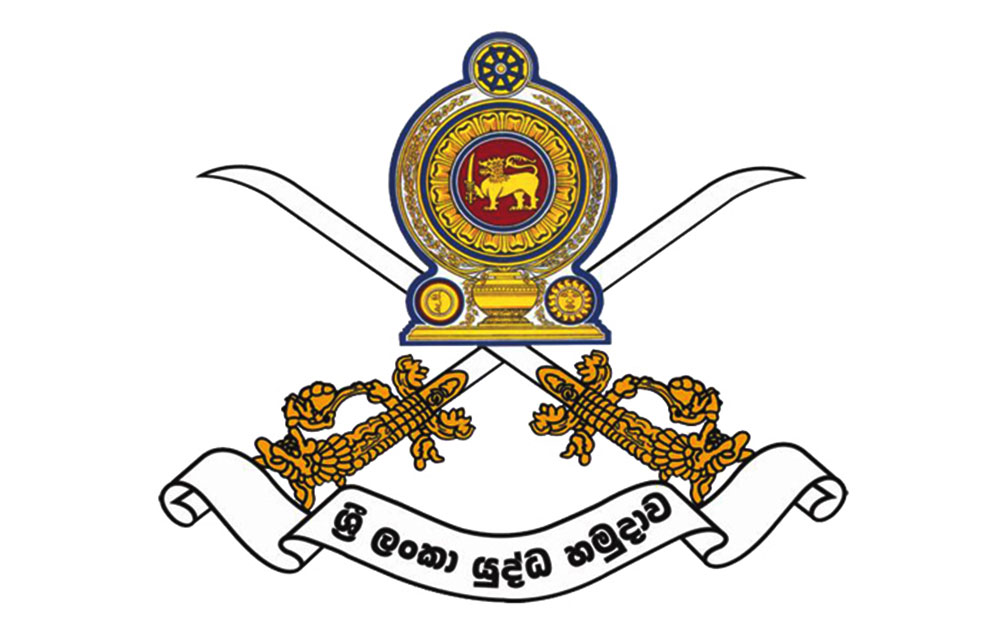
General Amnesty attracts 2882 Army deserters
A total of 2882 Army deserters, including 2 Officers have so far reported to receive their discharge from the Army in the past four days (April 22 - 25), Army said in a staement today.
The Army offered a General Amnesty period (22 Apr - 10 May) to all Army absentees under four categories on the recommendations of president Maithripala Sirisena in his capacity as the Commander-in-Chief of the Armed Forces and the Minister of Defence together with the recommendations of the Ministry of Defence and Army commander.
This newly-devised General Amnesty period now in force under the 1st Phase in the year accordingly facilitates the discharge of all Army Officers who are absent without leave (AWOL) for more than 21 days, Other Rankers who are absent for more than 6 months (180 days) by 22 April 2019 and those absentees willing to rejoin the Army after their absence of more than 6 months.
Considering practical necessities, discharge of those absentees is being implemented under four categories as mentioned below;
Category No - 1:
Those long-term absentees who do not owe any money to the Army or are not implicated in any legal matter are eligible to receive a direct discharge, irrespective of paraphernalia (Q items), issued to the subject or any other legal matters, involved in civil courts.
Category No - 2:
Those who have no legal obligations and are capable of settling their loans against remaining balance money in the Army Benevolent Fund, Suwa Sahana Fund and Compulsory Savings Fund or through the guarantors or relatives, can be discharged, irrespective of paraphernalia, issued to the subject or any other involvement in legal issues in civil courts.
Category No - 3:
Under this category, those absentees without any legal issues or any loans that should be paid back to the Army or whose loans can be settled against their balances in the Army Benevolent Fund, ‘Suwa Sahana’ Fund and Compulsory Savings Fund either from the guarantors or the relatives, are eligible to receive a discharge from the Army.
Category No - 4:
Absentees who have been charged for indiscipline or accused of other malpractices or criminal acts could also receive a discharge in accordance with existing Army legal procedures and regulations.
Likewise, all paraphernalia (‘Q’ items) issued to the absentees and any of their involvement in non-Army related civil court cases, would in any way not be considered under all four categories expecting to receive discharge from the Army as specified above.
Similarly, all those absent for more than 6 months from service but are still willing to rejoin can be considered for reinstatement, if so requested.
Under this new programme for delisting, absentees within this General Amnesty period are requested to directly reach their respective Regimental Headquarters either in person or by communication to receive their discharge from service within the specified period.
Those intending to use the facility should carry the Army Identity Card (if available), National Identity Card, documents related to injuries sustained in terrorist attacks, etc before such discharge is obtained.
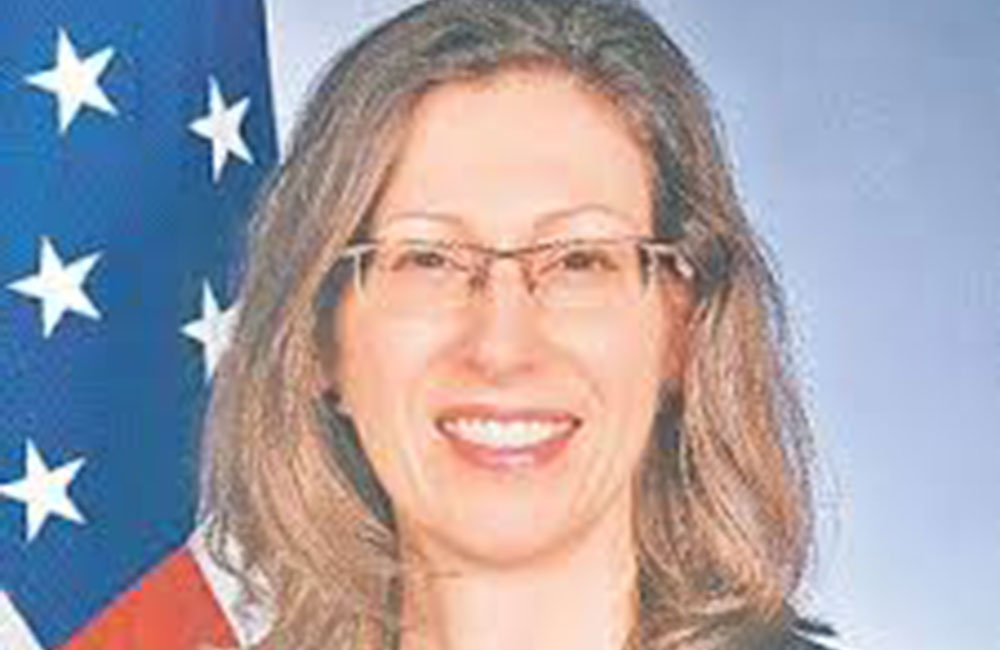
Trump's offer of assistance to Sri Lanka 'concrete and significant': US Ambassador
U.S. Ambassador to Sri Lanka Alaina B. Teplitz called for unity in the wake of the Easter Sunday terrorist attacks that killed at least 359 innocent people, including four U.S. citizens. Noting the progress Sri Lanka has made in building trust and ties among people of different faiths and ethnicities over the last few years, she urged Sri Lankans to remain unified.
“These terrible attacks are the work of a few individuals and not of an entire community,” Ambassador Teplitz said. “Sri Lankans of all backgrounds and faiths have come together to condemn these atrocities. Unity is the most powerful answer to terrorism.”
Ambassador Teplitz stated that President Trump’s offer of assistance was both concrete and significant: expert teams from the U.S. Federal Bureau of Investigation and the U.S. Indo-Pacific Command (USINDOPACOM) are providing support to the Sri Lankan-led investigation into the attacks, at the behest of the Sri Lankan Government. These teams are working side-by-side with Sri Lankan law enforcement officials in forensics and crime scene investigations. The Embassy is working to determine ways in which we can assist Sri Lanka’s communities in coming together in the aftermath of this tragedy.
“We want to provide all possible support to Sri Lanka’s efforts and are assisting at the invitation of the government,” the Ambassador added. “Conspiracy theories about the involvement of the U.S. military draw attention away from where it should be focused, which is firmly on the victims and their families.” The cooperation is part of the growing partnership between the United States and Sri Lanka. Security is a key component of that partnership. “As a close friend to Sri Lanka, we are heartbroken by these attacks. We’re committed to helping Sri Lanka emerge from this crisis stronger and more unified.”
Sri Lanka should rise above politics
Sri Lanka’s leaders must set aside their differences to focus on the pressing security and economic challenges facing the island nation after the deadly Easter bombings, the top U.S. envoy said in an interview.
"They have to rise above the politics to address the situation at hand," ambassador Teplitz said in a phone interview on Wednesday.
"Already, many friends of Sri Lanka have been encouraging them to get past some of the politics and focus on the needs of the country, particularly around their economic future."
Investor ConcernsThe U.S. Federal Bureau of Investigation is assisting the Sri Lankan government in its investigation of the "very sophisticated attack," she said. But the country’s leaders now need to pull together and make sure investors and tourists -- a big source of revenue -- feel secure enough to invest in and visit the tropical country, particularly after Sirisena’s attempt to fire Wickremesinghe last year paralyzed government.
"There was a constitutional crisis at the end of the year that certainly caused tourists and investors to pause," Teplitz said. "The government itself admits very serious intelligence lapses. The effort has to be how they address those weaknesses and shore this up for the future. As a country, it still has tremendous potential -- to be booming, frankly -- and tourism is probably a leading sector in that."
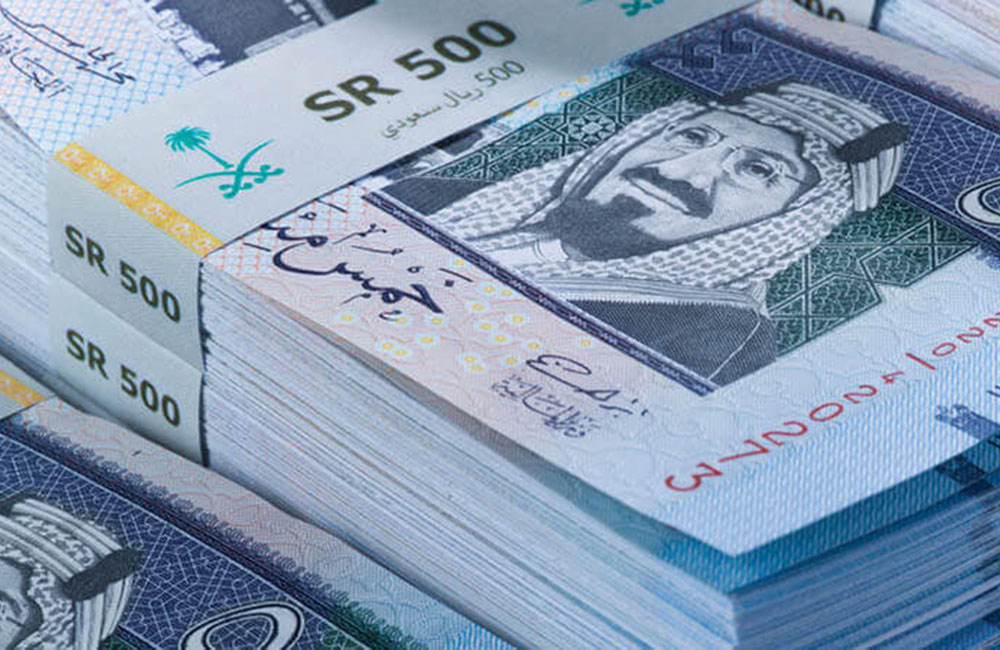
Saudi money may have gone to 'extreme organisations'
Sri Lankan authorities are investigating the source of funding to terrorist organisations that may be operating in the country, Sri Lankan Prime Minister Ranil Wickremesinghe said in an interview on Thursday.
"Well there has been money coming in from Saudi Arabia over the last 20, 30 years to religious organisations ... I don't know who are the agencies who sent it. I mean Saudi Arabia or the Middle East has been the source of many of those funds and some of it has gone into these extreme organisations," the prime minister told AP.
Mosques hold Friday prayers despite warning
Some mosques in Sri Lanka held Friday prayers despite the potential for attacks after the Easter suicide bombings.
At 12:10 pm (local time), the call to prayer echoed through the Masjidus Salam Jumma Masjid mosque in the capital Colombo.
"We are sending a message to extremists that we will not be scared or deterred," said Reyyaz Salley, chairman of the Dawatagaha Jumma mosque.
"But the main reason we are here is because we want to say a special prayer for the victims of the church bombings," he added.
Sri Lankan authorities had asked Muslims to pray at home rather than attend communal Friday prayers that are the most important of the week.
Armed police stood guard outside mosques on Friday. (TRTWORLD)
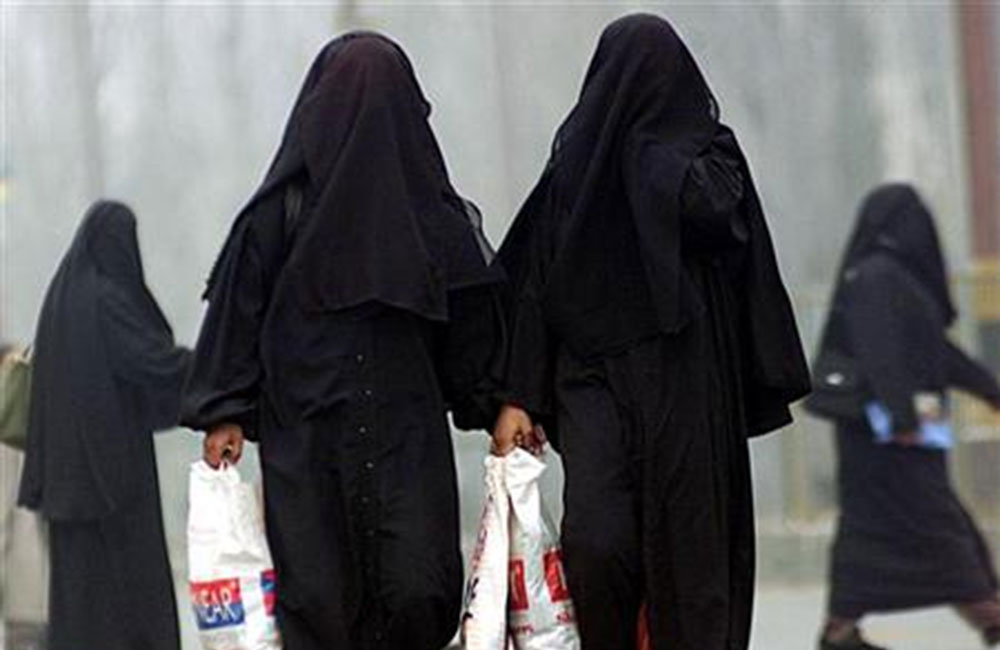
Sri Lankan Muslim leaders urge women not to wear veil
All Ceylon Jamiyyathul Ulama (ACJU), the apex body of Islamic scholars in Sri Lanka, has called upon the country's female residents not to wear a face veil and, thus, not to impede the work of law enforcement agencies that investigate the recent deadly attacks in the South Asian nation.
"We strongly appeal to our sisters to be mindful of the critical emergency situation now prevalent in our country and the difficulties faced by the security officers in performing their functions in situations where the identity of a person cannot be ascertained. Hence, we advise that in the prevailing situation our sisters should not hinder the security forces in their efforts to maintain national security by wearing the face cover (Niqab)," the organization said in a statement.
The ACJU also appealed to everyone to cooperate with the security forces and law enforcement agencies."As Muslims, we are obliged to be responsible citizens and protect our motherland and maintain peace and order… We also recommend that all persons should carry their National Identity card at all times to be produced when required by any public officer," it concluded. The sri Lankan
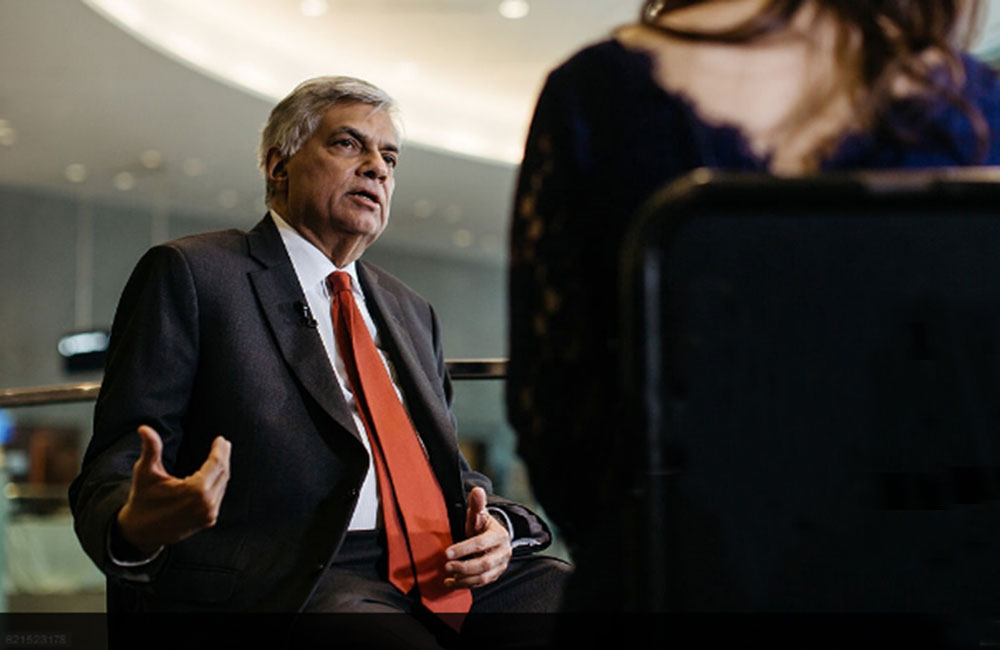
Sri Lanka can't arrest citizens who joined ISIS: PM
Prime Minister Ranil Wickremesinghe said that the government had known that Sri Lankan nationals who had joined the Islamic State had returned to the country, but they could not be arrested as joining a foreign terrorist organisation is not against the law.
The Islamic State group has claimed responsibility for the Easter terror attacks on three Catholic churches and three luxury hotels that claimed 253 lives but the government has blamed a local Islamist extremist group National Tawheed Jamath (NTJ) for the bombings.
"We knew they went to Syria...But in our country, to go abroad and return or to take part in a foreign armed uprising is not an offence here," Wickremesinghe told Sky News. "We have no laws which enable us to take into custody people who join foreign terrorist groups. We can take those who are, who belong to terrorist groups operating in Sri Lanka," he was quoted as saying.
Facing public criticism for not acting against Islamist extremist groups in the island nation, Prime Minister Wickremesinghe said some of the suspected attackers responsible for the Easter bombings were being monitored by the country's intelligence services. But authorities did not have "sufficient" evidence to place the suspected attackers in custody prior to the attacks, he said.
Top officials have acknowledged that Sri Lanka received intelligence about possible terror strikes ahead of the attacks, but both President Maithripala Sirisena and Prime Minster Wickremesinghe have said that they did not receive the information.
Wickremesinghe told CNN that he did not rule out the possibility of more attacks in the country. He said authorities were now focussing on "sleepers" - terrorists who could activate another round of attacks.
"Police and security forces are rounding up those involved, but they're also rounding up the sleepers, those used on second and third rounds (of attacks)," he said. "The danger has come down drastically, (but) we do have to pick up some more sleepers, which we will do in the next few days."
Sri Lankan police have released photos of six suspects, including three women, wanted for their involvement in the attacks and sought information regarding them from the public. Authorities earlier said nine bombers, believed to be members of local Islamist extremist group NTJ, carried out the blasts.
(PTI)
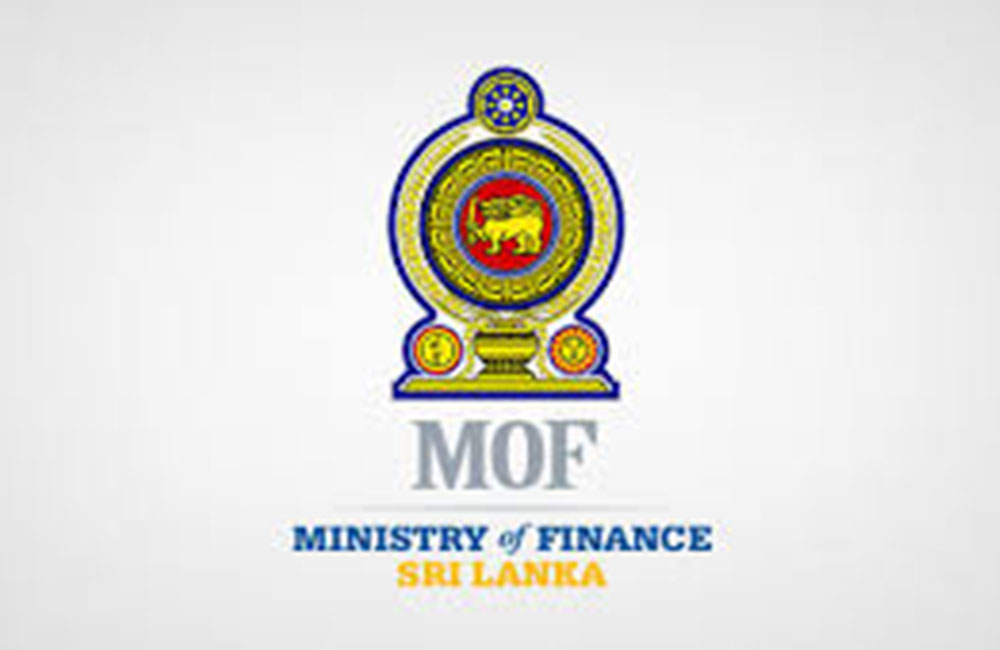
Treasury pays Rs.84 billion in overdue payments for various projects
The Treasury has paid off Rs.84,461 million which were due by December 31, 2018 for various programmes and projects implemented under different Government ministries and institutions, the Ministry of Finance said in a statement.
Earlier, the Treasury had been informed that Rs.99,415 million was due at December 31, 2018 for completing various projects undertaken by various government institutions. Treasury Secretary, Dr. R.H.S. Samaratunga stated that 85% out of the total due payment has already been paid off. He said there are some shortcomings in the balance and, action will be taken to pay off it once such shortcoming are cleared.
Having completed various contracts, constructions and procurement, Government ministries and other institutions forward their vouchers to the treasury for payment by the end of the month of December each year. Treasury has been continuously making payments for such vouchers within the first 3 – 4 months of the following year since 2015.
However, there was a delay in making such payments as did in the past, in the last Quarter of 2018 due to the uncertainty that hit the country. At the same time the passing of budget 2019 could not be achieved in the year 2018. It was delayed until April 5th, 2019. Consequent to this delay, the sum of due payments at the end of the year 2018 was accumulated unprecedentedly up to Rs. 99 billion. Accordingly, this also caused a delay in the settlement of payments of the year 2018.
On the advice of Finance Minister Mangala Samaraweera, the Public Finance Department of the Treasury has been making arrangements to digitalize the Government Procurement System. Therefore, as commenced in the year 2015, the Treasury will be able to make all future due payments for government procurement soon after such particular projects are completed.
Page 327 of 510